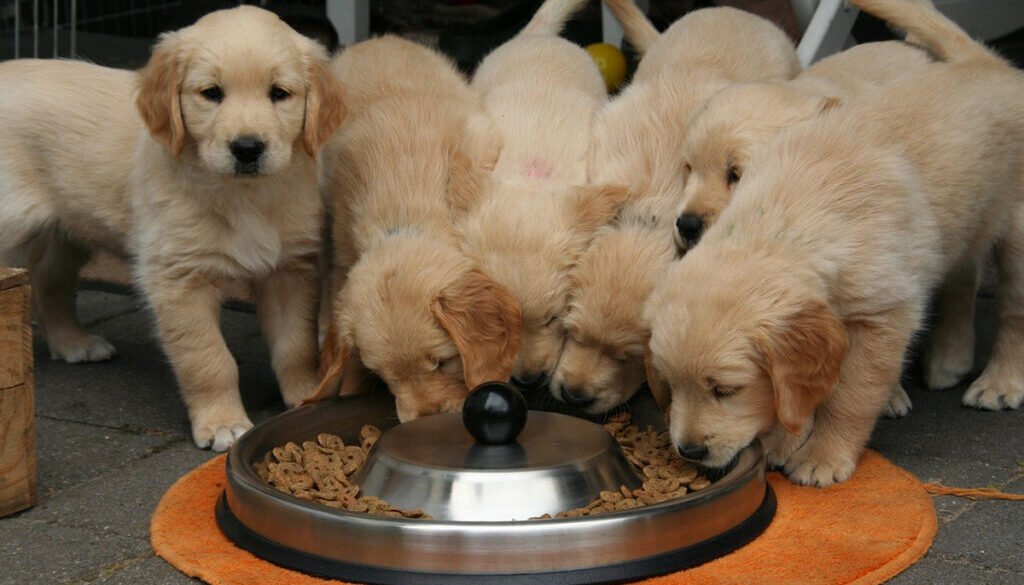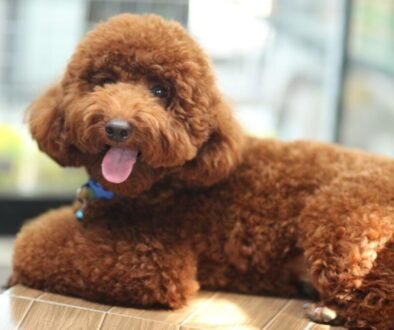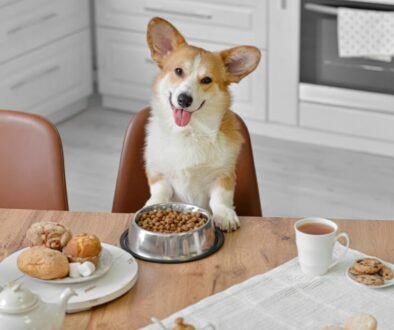Best Food for a Golden Retriever Puppy
Golden retrievers are bundles of joy with a big appetite, but are you feeding your puppy the best food for their growth and health? Whether you’re a new pet parent or looking to enhance your pup’s diet, the right nutrition can make a world of difference!
Why Choosing the Right Food Matters
Golden retrievers are naturally active, social, and curious – especially as puppies! Their growth rate and energy levels are impressive, which means their dietary needs are unique. A study by the American Kennel Club shows that golden retrievers, as a large breed, have specific needs for controlled calorie intake and calcium-to-phosphorus ratios to ensure strong bones and joints without overgrowth issues. Feeding your golden retriever the right food isn’t just about calories; it’s about balancing nutrients to support growth, prevent joint issues, and enhance their lustrous golden coat.
“You are what you eat!” Ever heard that saying? For golden retriever puppies, this couldn’t be truer. Good nutrition can help them live a longer, healthier, and happier life!
What to Look for in Puppy Food
Choosing food for a golden retriever puppy goes beyond picking a brand name. It’s about ensuring each bite fuels their growth while preventing health issues common to large breeds.
Key Nutrients for Golden Retriever Puppies
Here’s a quick checklist of the essential nutrients and their importance:
- Protein: Builds and repairs muscles, tissues, and organs. Look for high-quality sources like chicken, turkey, beef, or fish.
- Fats: Provides energy and supports skin and coat health. Aim for foods with fish oils or flaxseed.
- Calcium and Phosphorus: Crucial for bone and joint health. For large breeds like goldens, a controlled balance (around 1.2:1) is essential to prevent rapid growth.
- Omega-3 Fatty Acids: Supports brain development and eye health. Look for fish-based sources like salmon.
- Antioxidants: Boosts the immune system and supports long-term health.
- Fiber: Aids digestion and prevents common puppy issues like constipation.
Expert Tip: Avoid foods with artificial preservatives, fillers, or excessive grains that can lead to allergies or digestive upset in some puppies.
Top Recommended Foods for Golden Retriever Puppies
With so many options on the market, let’s take a closer look at some of the best food options across categories, covering dry, wet, and grain-free diets.
Best Dry Puppy Food
Dry food, or kibble, is a convenient and cost-effective choice that provides balanced nutrition for growing puppies. Here are a few top-rated options:
- Royal Canin Golden Retriever Puppy Dry Dog Food
- Why it’s great: Formulated specifically for golden retrievers, it has a balanced protein-to-fat ratio, omega-3s, and antioxidants.
- Pros: Tailored nutrients for coat health and bone strength.
- Cons: A bit pricier, but the breed-specific formulation is highly effective.
- Hill’s Science Diet Puppy Large Breed Dry Dog Food
- Why it’s great: Known for high-quality ingredients and large-breed-specific formulations, Hill’s Science Diet focuses on controlled calcium levels.
- Pros: No artificial colors or preservatives; balanced minerals for strong bones.
- Cons: Limited flavor options.
- Purina Pro Plan Puppy Large Breed Dry Dog Food
- Why it’s great: Real chicken as the first ingredient and DHA for brain development.
- Pros: Affordable, nutrient-rich, and a reputable brand.
- Cons: Contains grains, which may not be suitable for all puppies.
Best Wet Puppy Food
Wet food is an excellent choice for picky eaters or young puppies that need a softer texture. Here are a few options for wet puppy food:
- Blue Buffalo Homestyle Recipe Puppy Wet Dog Food
- Why it’s great: Contains real chicken and vegetables with no artificial flavors.
- Pros: Great for finicky eaters, balanced nutrients for puppy growth.
- Cons: Slightly more expensive than dry food options.
- Wellness CORE Grain-Free Puppy Formula Wet Canned Dog Food
- Why it’s great: Grain-free, protein-rich, and packed with superfoods for immune health.
- Pros: High protein and palatable taste.
- Cons: Some puppies may need time to adjust to grain-free foods.
- Nutro Puppy Grain-Free Cuts in Gravy
- Why it’s great: Features real meat in gravy, ideal for puppies who prefer a softer texture.
- Pros: Great protein content, palatable, and free of artificial preservatives.
- Cons: Smaller serving sizes may be needed for larger puppies.
Best Grain-Free Options
Grain-free foods are often ideal for golden retrievers with sensitive stomachs or allergies.
- Merrick Grain-Free Puppy Food
- Why it’s great: Rich in protein with real deboned meat as the first ingredient.
- Pros: High-quality ingredients and suitable for large-breed puppies.
- Cons: Higher price point.
- Instinct Raw Boost Puppy Grain-Free Recipe with Real Chicken
- Why it’s great: Combines freeze-dried raw bites with kibble, providing extra protein and flavor.
- Pros: Packed with omega fatty acids and DHA.
- Cons: Some puppies may not adapt quickly to the raw element.
- Taste of the Wild High Prairie Puppy Formula
- Why it’s great: Made with novel proteins like bison and venison, which may be more digestible for some puppies.
- Pros: Grain-free with probiotics for digestive health.
- Cons: Somewhat less available in stores compared to popular brands.
Homemade Diet for Golden Retriever Puppies

Creating homemade food for your golden retriever puppy can be rewarding if done right. If you choose to go this route, make sure to consult with a veterinarian to get balanced recipes that cover essential nutrients.
Sample Recipe: Chicken and Veggie Mix
- Ingredients:
- 1 cup of lean chicken (cooked and shredded)
- 1/2 cup of brown rice (cooked)
- 1/4 cup of carrots and peas (steamed and chopped)
- 1 tablespoon of fish oil (for omega-3s)
Instructions: Mix all ingredients in a large bowl and serve based on your puppy’s weight and activity level. Remember, each meal needs to be tailored to meet the puppy’s unique needs.
Note: Add calcium supplements or consider bone meal to ensure they get enough for strong bones.
Feeding Schedule and Portion Size Guide
Golden retriever puppies typically eat 3-4 times per day until around six months, when you can switch to two meals a day. Below is a general guide, but adjust according to your puppy’s weight, age, and activity level:
- 8-12 Weeks: 1-1.5 cups, divided into 3-4 meals
- 3-6 Months: 1.5-2.5 cups, divided into 3 meals
- 6-12 Months: 2.5-3.5 cups, divided into 2 meals
Important Tip: Follow your food’s feeding guidelines and consult your vet for personalized advice.
Transitioning to Adult Dog Food
Golden retrievers are typically ready to transition to adult food between 12-18 months. Look for adult dog food with a balanced nutrient profile and introduce it gradually over 7-10 days, mixing it with their puppy food to avoid digestive upset.
Conclusion and Key Takeaways
Golden retriever puppies thrive on high-quality food that’s designed for large breeds. Prioritize protein, controlled calcium, and omega fatty acids to support growth and prevent joint issues. Keep meals consistent, follow recommended portion sizes, and consult your vet for any specific dietary needs. With proper nutrition, your puppy will grow into a strong, healthy, and happy adult.
FAQs
Q: Can I feed my golden retriever puppy human food?
A: Some human foods, like plain cooked meat or vegetables, are safe in moderation. Avoid toxic foods like chocolate, onions, and grapes.
Q: How often should I change my puppy’s food?
A: Unless there are digestive issues, stick with one brand. Frequent changes can lead to digestive upset.
Q: What if my puppy seems hungry all the time?
A: Puppies have high energy needs, but overeating can lead to rapid growth. Follow portion guidelines and consult your vet.
Q: Are grain-free diets better for golden retrievers?
A: Not necessarily. Some puppies thrive on grains, while others may have allergies. Work with your vet to determine the best choice.



